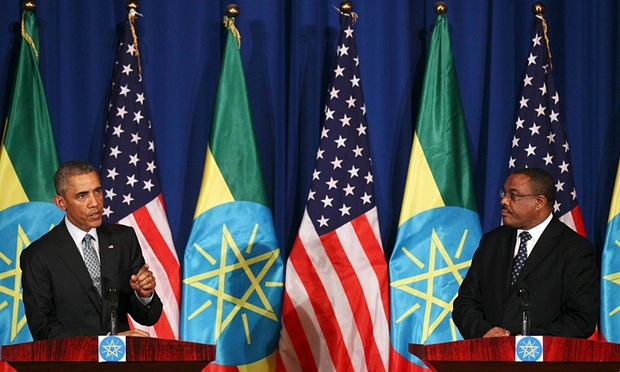A fresh U.S. trade pact could provide relief to African economies buffeted by the commodities slump but a failure to reform during the boom years has left many countries unable to profit from tariff-free access to the world’s largest market.
In an effort to boost trade under the African Growth and Opportunity Act (AGOA), renewed by the U.S. Congress for a decade in June, representatives from 39 African countries will hold talks with U.S. officials in oil-rich Gabon this week.
With U.S. demand for petroleum imports falling as a result of its shale revolution and commodities prices across the board hit by China’s slowdown, the blow to African economies has highlighted their failure to industrialize.
The World Bank forecasts GDP growth in sub-Saharan Africa will slow this year to 4.2 per cent, down from an average of 6.4 per cent during 2002 to 2008.
Despite a decade of rapid growth, sub-Saharan Africa’s manufacturing sector remained weak. While exports from the region more than quadrupled to $457-billion in the decade to 2011, manufactured goods made up just $58-billion of that.
U.S. officials say that, even with tariff-free access, a range of problems are holding back African exports, from poor transport links to costly electricity, lack of bank credit, corruption and labyrinthine bureaucracy.
“When you look at a container of coffee or textiles coming out of Africa, it is substantially more expensive and less competitive than the same container coming out of parts of Latin America,” said U.S. trade representative Michael Froman. “One of the lessons of the first 15 years of AGOA is that tariff preferences, while important, are still not enough.”
Those countries that aim to benefit from AGOA, such as Ethiopia and Kenya, are not dependent on oil or mining, giving them an incentive to diversify into areas such as footwear and textiles exports.
Ethiopia is positioning itself to become a manufacturing hub, driven in part by investments from China and India as labour costs in their own backyards rise.
By contrast, big resource producers from bauxite miner Guinea to oil-exporter Nigeria failed to channel vast capital flows into diversification. In many cases, currencies inflated by these flows made other exports less competitive.


